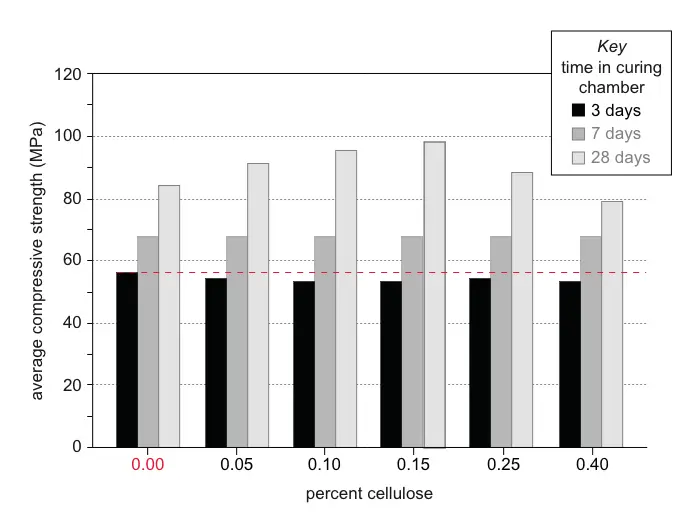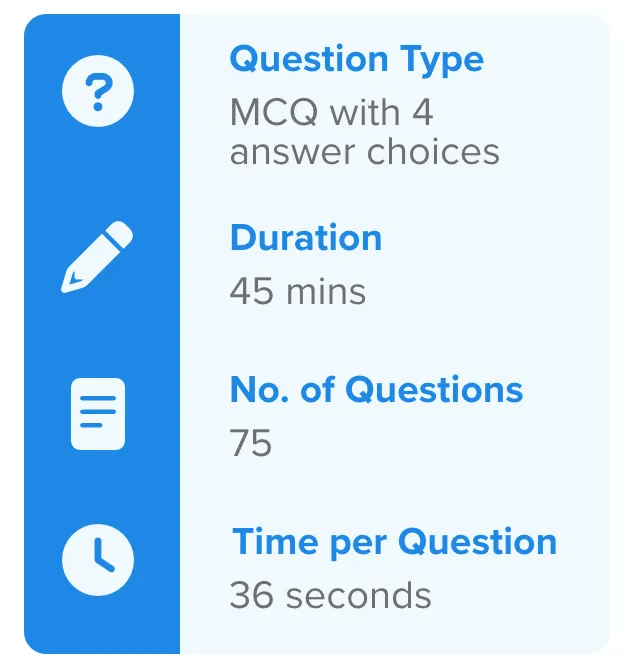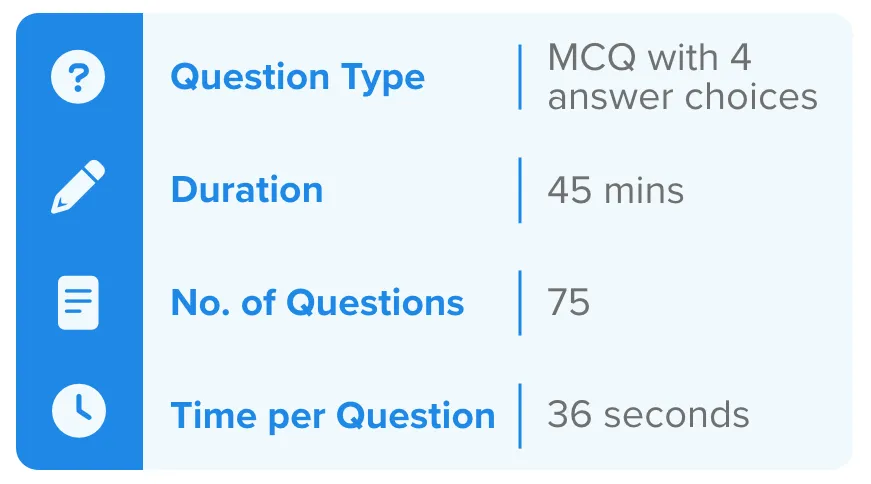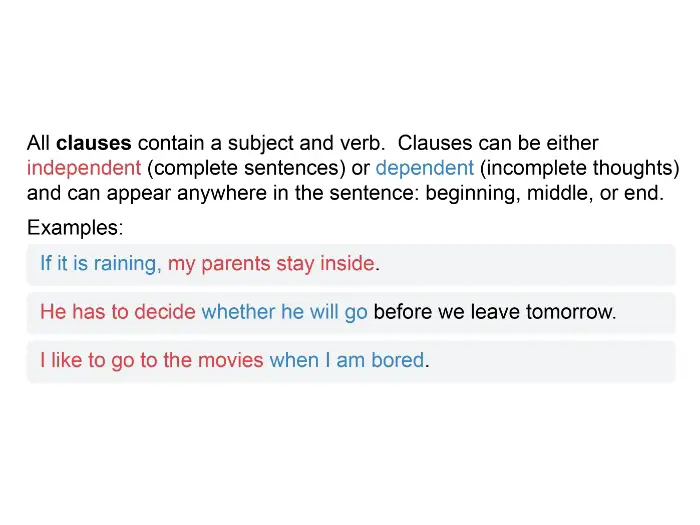About The ACT® English Test
ACT® English is the first of the four test sections of the ACT and contributes to 25% of your final ACT score. Acing this section is crucial if you are shooting for an ACT score of 30 or above. If you want to take the ACT, you need to understand how the ACT English Test is set up, what kinds of questions it has, and what it tests. No need to worry, we’ve got you covered!
What Is On the ACT English Test?
The ACT English Test consists of passages and essays, each followed by a set of multiple-choice questions (MCQs). The questions throughout this section will assess a variety of grammar and writing skills based on your high school curriculum. This means that you should have been exposed to the necessary concepts at some point in your high school career. So a large portion of your prep for this section of the test would simply involve familiarizing yourself with these concepts.
These questions mainly cover concepts related to grammar and rhetoric. You will be asked to review texts, find and fix grammar and punctuation mistakes, and evaluate the passage’s structure, organization, and choice of words. Overall, you will be tested on your knowledge of standard English grammar conventions and how you reconstruct sentences to make them coherent and improve their flow.
We have full-length tests that simulate the real exam and score predictors to estimate what you will make.
ACT English Test Format
So, how long is the ACT English Section? It is a 45-minute-long test where you will have to answer 75 MCQs. There are a total of five passages, each with 15 MCQs. After each passage, you can expect to answer about four Production of Writing questions, two to three Knowledge of Language questions, and seven to eight Conventions of Standard English questions.
Want to know more? Read our ACT Test format and sections guide for a comprehensive overview.
What type of questions are on the ACT English?
You will see three types of questions on ACT English:
-
Production of Writing:
These questions will test how well you understand the purpose of a text and revise it based on content organization, flow, and logic. You will get around 22 - 24 questions of this type.
To do well on these questions, practice pinpointing the purpose of a given line, word, or phrase. You should also be able to state whether a portion of the passage successfully accomplishes its purpose for the larger text. If the information in a given line is not functional to the development of ideas, then you should be able to determine its relevance (or lack thereof).
Also, practice evaluating the structure of the passage. Pay attention to the flow of ideas, and ensure that there is a beginning, middle, and end. You should be able to determine any structural errors that impact the logic of the passage.
-
Knowledge of Language:
Some questions will ask you to show how precisely you can use words to describe a context, feeling, or situation, along with maintaining a consistent tone throughout the passage. There are about 10 - 14 questions of this type on the ACT English Test.
To do well on these questions, you should know that good writing is concise and to the point. Practice recognizing when the text in question is unnecessarily wordy or redundant. You should also be able to pinpoint variations in style or tone. In addition, reading passages to practice the understanding of overall ideas and how best to lay them out in a passage will help you identify passages that are not efficiently communicating the purpose of the text.
-
Conventions of Standard English:
The rest of the questions will test your knowledge of standard English grammar through sentence construction, usage of punctuation, words, and how well you can review a given text to make it more coherent and smooth. You will get around 38–42 questions from this question type.
To do well on these questions, practice making improvements in sentence structures. You should also review punctuation rules and have a strong understanding of how commas, colons, semicolons, apostrophes, and hyphens are used.
Our guide to the ACT Syllabus is here to help you learn more about the topics, concepts, and skills tested on ACT English.
How Hard Is the ACT English Test?
The ACT English section has the most questions on the test, so time management is a crucial component to consider. While there is no benchmark to answer whether ACT English is hard or easy, reviewing numbers from the last few years of ACT Tests can help us understand the scoring pattern and difficulty for this section. The following table lists the total number of students who took the ACT in the last few years, along with the percentage of students who earned a perfect score in ACT English. We’ve also included the percentage of students who met the benchmark for college readiness as indicated on the ACT score reports.
| Year | Total Students | Avg. ACT English score |
Students who scored a 36 | % of students who met the College Readiness benchmark |
|
|---|---|---|---|---|---|
| Number | % age | ||||
| 2022 | 1,349,644 | 19 | 11,716 | 0.87 % | 53 |
| 2021 | 1,295,349 | 19.6 | 13,177 | 1.01 % | 56 |
| 2020 | 1,670,497 | 19.9 | 19,905 | 1.11 % | 58 |
As you can see from the table above, the average score for ACT English has declined over the past three years, which also reflects in the percentage of students getting a 36 on this section. But don’t fret! We’ve got your back!
The best way to prepare for ACT English questions is by gaining realistic experience with their styles and levels of difficulty. Pick up passages from books and newsletters, and read them to better understand sentence structure, word choice, tones, and styles. It would also be helpful to practice some basic grammar exercises to understand how and where punctuation is used. During your practice work, pay attention to the formatting of Production of Writing questions, Knowledge of Language questions, and Conventions of Standard English questions. By building a strong understanding of the format for each question type, you may be able to predict which skill is being assessed.
Does the ACT English section get progressively harder?
No. The questions do not follow an order of increasing difficulty. Instead, they are organized in the same random manner as the passage.
Start practicing with our thousands of high-quality ACT questions and in-depth explanations.
How to Calculate ACT English Score?
The ACT English score is calculated on a scale of 1-36. To derive this section score, there are two steps involved:
- First, the number of questions you answered correctly are counted and you are given a raw score based on those. There’s no penalty for incorrect answers.
- Next, your raw score is converted to the ACT scaled score that ranges from 1-36.
Once your scaled score on the English Test has been derived, it is added to the test scores from your other sections, namely, Mathematics, Reading, and Science. This score is then averaged (divided by 4) to derive your composite ACT score.
What is the passing score for the ACT English?
There is no passing score for the ACT. However, there is a college readiness benchmark set by the ACT that indicates the minimum test scores required for students to have a reasonable chance of succeeding in college. These benchmarks are derived from credit-bearing classes offered in fundamental subject areas and are the ones that first-year college students typically enroll in.
What is a good ACT English score?
If your score is above the college readiness benchmark set by the ACT, it is considered a good ACT English score.
What is the average English ACT score?
The average ACT English score for the past four years (2019-22) has been 19.65.
What is a bad ACT English score?
Any score that is recorded below the college readiness benchmark set by the ACT is considered a bad ACT score.
ACT English Review Tips
When it comes to performing well on the ACT English section, you can set yourself up for success with a plan to effectively manage time, master the fundamentals, and reinforce those with repeated practice. Here are a few review tips to give you a head start:
-
Time Management
There are 75 questions and only 45 minutes in which to complete them, leaving you with 36 seconds to answer each one. With so little time to read the passages and complete the section, you don’t have time to second-guess or check your answers. Taking repeated practice tests will help you develop the necessary time management skills to complete the section in the allotted time.
-
Focus
Studying grammar rules is one of the most effective things you can do to improve your score and ensure you complete the section on time. With several hours of committed and focused practice, you’ll see tremendous progress.
-
Master the Fundamentals
You’ll be tested on your knowledge of writing conventions like grammar and punctuation; whether a sentence needs commas, colons, periods, or question marks, or parts of speech like conjunctions, nouns, prepositions, pronouns, and verbs. Focus on mastering the fundamentals.
-
Word Choice
You will be asked about the meaning of vocabulary words as well as to choose phrases that are concise and precise. The most effective way to prepare is to practice questions that help you recognize words and phrases with the appropriate style and tone to fit with the rest of the passage.
-
Production
The ACT English section contains questions about the production of writing and tests your ability to select words, phrases, and sentences that are relevant to and supportive of the purpose of the passage. Repeated practice is essential to improve your skill in this section.
Preparing for the ACT English section can be a daunting task, especially if you aren’t familiar with some of the above terms or it’s been a while since you’ve studied or practiced grammar rules. Completing practice questions and exams modeled after the ACT will help you refine your skills. Just make sure that there is an explanation for each answer so that you understand the fundamentals behind each question; otherwise, just knowing whether you get a question right or wrong does not benefit you if you don’t understand why.
As you prepare for the ACT English test, try out UWorld’s ACT Prep Course. You can find thousands of realistic sample questions, detailed question explanations, and performance-tracking tools to ensure that you have a strong understanding of your weak points and plenty of resources to work on your skills. Try it out to perfect the skills outlined above and reach your full scoring potential on the English section of the ACT test.
Study on your schedule, at your pace, and at an affordable price.




